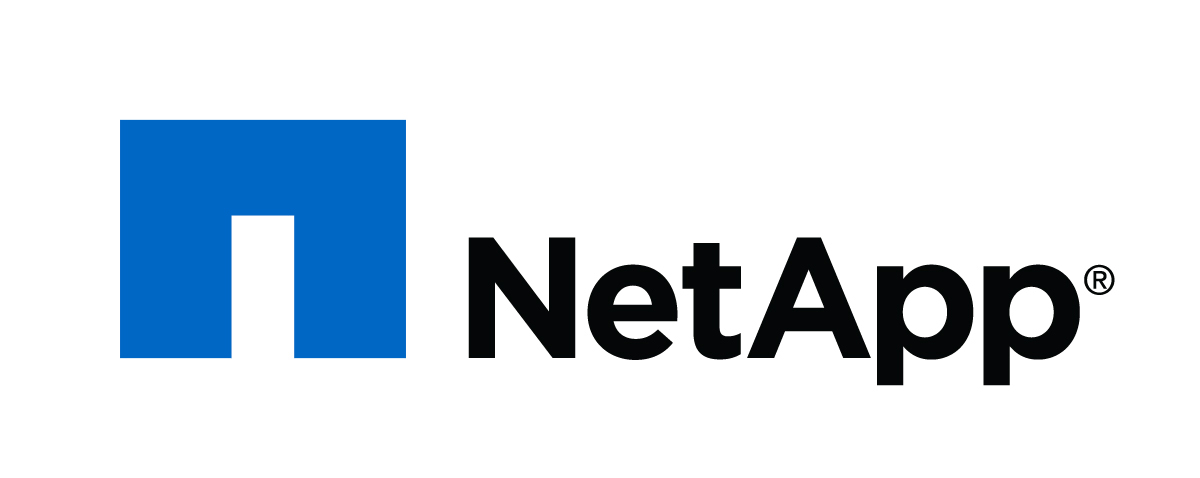ACM SIGCOMM Student Research Competition (SRC)
Introduction
The ACM SIGCOMM Student Research Competition (SRC) offers a unique forum for undergraduate and graduate students to present their original research before a panel of judges and attendees at well-known ACM-sponsored and co-sponsored conferences. Winners of the ACM SIGCOMM SRC at SIGCOMM will advance to ACM Grand Finals of the Student Research Competition to compete against the winners of other ACM conferences. The SRC, including a small travel budget for each participant, is sponsored by Microsoft Research.
How does the competition work?
The ACM SRC at SIGCOMM organizes two distinct competitions for undergraduate and graduate students. The timeline of the competition is as follows:
-
Pre-selection: Students submit their work as a poster/demo here. See eligibility criteria below.
-
1st round “Poster session”: The selected students register to the conference and present their work in front of the conference attendees. Specifications on poster size and content will be defined by the SRC chairs. Students are expected to discuss their work with evaluators who visit their presentation areas. Each evaluator will rate the student’s visual presentation based on the criteria of uniqueness of the approach, the significance of the contribution, visual presentation, and format of presentation. The evaluation criteria used can be found under General Judging Criteria.
-
2nd round “Presentation session”: A separate session is scheduled for semi-finalists to give a ten minute presentation followed by a five minute question and answer period. This session will be attended by the evaluators and any interested conference attendees. The top three finalists in each category will be chosen based on these presentations.
-
Announcement of Three Finalists In Each Category (Undergraduate and Graduate): This usually takes place at a well-attended session of the conference. Each student will receive their prize after the conference. The first place winners will compete in the Grand Finals, which takes place toward the end of the program year.
-
The Grand Finals: The undergraduate and graduate first place winners from all SRCs for the program year compete in the Grand Finals. More information here.
Who is eligible?
You have to submit a poster or demo abstract to SIGCOMM (Poster and Demo page). Qualified entrants must have current ACM student membership, have graduate or undergraduate student status at the time of submission, and be the lead student author of the project. If a graduate or undergraduate student is part of a group research project and wishes to participate in an SRC, they will be required to submit a separate write-up describing their individual contribution to the group research project if they are selected, and present it during the first and second round “poster” and “presentation” sessions (see the above section). Following the same spirit, in case of demo submissions, the student contributions should be clearly defined.
Submissions must be original research that is not already published at another conference or journal (e.g., please do not submit your dissertation summary as your abstract). One of the goals of the SRC is to give students feedback on ongoing, unpublished work. Note that submissions based on work accepted at this SIGCOMM will not be considered eligible.
The SRC does count as a presentation venue, and submitting the work that is being submitted at other venues would violate the ACM SIGCOMM duplicate submission policy.
You can only participate in one ACM SIGCOMM SRC per year.
Selected students must register to the ACM SIGCOMM conference.
How to participate?
The ACM SIGCOMM poster and demo sessions will also serve as an ACM SIGCOMM Student Research Competition. To enter the first stage of the SRC, submit a poster or demo abstract. SRC submissions should be at most 100 word abstracts. Submissions should not exceed the minimum between two (2) pages and 800 words. If a submission has multiple authors, please provide the name of your advisor or supervisor when submitting the paper. The candidate student should be the first author. While not mandatory, entrants are encouraged to submit a letter from their advisor/supervisors describing the specific contributions made by the student. Undergraduates and graduate students will be treated in separate divisions (students starting their first year of graduate school at the time of the conference will be considered as undergraduates). Tick the corresponding box when submitting your work.
A small travel supplement of 500 USD is made available to accepted SRC entrants; please also submit applications for travel grant support. More information here.
Sponsors

List of winners
-
Undergraduate winners:
-
1st place: Zili Meng, Tsinghua University
“PAM: When Overloaded, Push Your Neighbor Aside!”
-
2nd place: Gonzalo Marín, AIT Austrian Institute of Technology
“RawPower: Deep Learning based Anomaly Detection from Raw Network Traffic Measurements”
-
3rd place: Angelo Tulumello, CNIT/Rome Tor Vergata University
“A Fully Portable TCP Implementation Using XFSMs”
-

|
-
Graduate winners:
-
1st place: Suraj Jog, University of Illinois at Urbana Champaign
“Enabling Dense Spatial Reuse in mmWave Networks”
-
2nd place: Marcin Nawrocki, Freie Universität Berlin
“On the Potential of BGP Flowspec for DDoS Mitigation at Two Sources: ISP and IXP”
-
3rd place: Pedro Marcos, UFRGS and FURG
“Dynam-IX: a Dynamic Interconnection eXchange”
-

|
Important Dates
-
June 19, 2018Acceptance notification
-
May 22, 2018Submission deadline
Organizers
- Student Research Competition Chairs
-
Marco Chiesa
KTH, Sweden
-
Zhi-Li Zhang
UMN, USA
- Pre-selection reviewers
-
Same reviewers of Posters and demos
- First and second phase judges
-
TBA
few days before the conference
- Poster Juros
-
Aleksandar Kuzmanovic
Northwestern University & bloXroute Labs, USA
-
Anat Bremler-Barr,
Interdisciplinary Center (IDC) Herzliya
-
Anja Feldmann
Max-Planck-Institut für Informatik, Germany
-
Ankit Singla
ETH, Switzerland
-
Anna Brunstrom
Karlstad University, Sweden
-
Arpit Gupta
Princeton, USA
-
Balakrishnan Chandrasekaran
Max-Planck-Institut für Informatik, Germany
-
Bruce Maggs
Duke and Akamai, USA
-
Chadi Barakat
INRIA, France
-
Chuanxiong Guo
Bytedance Inc
-
Chunyi Peng
Purdue, USA
-
Colin Perkins
University of Glasgow, UK
-
Craig Partridge
CSU, USA
-
Cristian Lumezanu
NEC Labs America, USA
-
David Dai
Huawei, China
-
Dah Ming Chiu
CUHK, China
-
David Hay
Hebrew University, Israel
-
David Walker
Princeton, USA
-
Dongsu Han
KAIST, South Korea
-
Georgina Wilcox,
Google, UK
-
Hamed Haddadi
ICL, UK
-
Hitesh Ballani
Microsoft, UK
-
Huapeng Zhou
Facebook, USA
-
Ignacio Castro
QMUL, UK
-
Jennifer Rexford
Princeton, USA
-
Jussi Kangasharju
UH, Finnland
-
Justine Sherry
CMU, USA
-
Kirill Kogan
IMDEA, Spain
-
Konstantina Papagiannaki
Google, USA
-
Lan Wang
University of Memphis, USA
-
Lars Eggert
NetApp
-
Lixin Gao
UMass, USA
-
Martina Zitterbart
KIT, Germany
-
Miki Yamamoto
Kansai University, Japan
-
Paolo Costa
Microsoft, USA
-
Patrick P. C. Lee
CUHK, China
-
Ramesh Sitaraman
UMass, USA
-
Sara Ayoubi
INRIA, France
-
Sujata Banerjee
VMware, USA
-
Thierry Turletti
INRIA, France
-
Tilman Wolf
UMass, USA
-
Timothy Wood
GWU, USA
-
Torsten Runge
UC Berkeley and ICSI, USA
-
Wenjun Hu
Yale, USA
-
Xiaoming Fu
University of Goettingen, Germany
- Presentation Juros
-
Anat Bremler-Barr
Interdisciplinary Center (IDC) Herzliya
-
Anja Feldmann
Max-Planck-Institut für Informatik, Germany
-
Ankit Singla
ETH, Switzerland
-
Anna Brunstrom
Karlstad University, Sweden
-
Arpit Gupta
Princeton, USA
-
Balakrishnan Chandrasekaran,
Max-Planck-Institut für Informatik, Germany
-
Bruce Maggs
Duke and Akamai, USA
-
Craig Partridge
CSU, USA
-
Dongsu Han
KAIST, South Korea
-
Georgina Wilcox,
Google, UK
-
Ignacio Castro
QMUL, UK
-
Jennifer Rexford
Princeton, USA
-
Jussi Kangasharju
UH, Finnland
-
Justine Sherry
CMU, USA
-
Kirill Kogan
IMDEA, Spain
-
Konstantina Papagiannaki
Google, USA
-
Martina Zitterbart
KIT, Germany
-
Miki Yamamoto
Kansai University, Japan
-
Paolo Costa
Microsoft, USA
-
Patrick P. C. Lee
CUHK, China
-
Sujata Banerjee
VMware, USA
-
Tilman Wolf
UMass, USA
-
Timothy Wood
GWU, USA
-
Torsten Runge
UC Berkeley and ICSI, USA
-
Wenjun Hu
Yale, USA
-
Xiaoming Fu
University of Goettingen, Germany


















